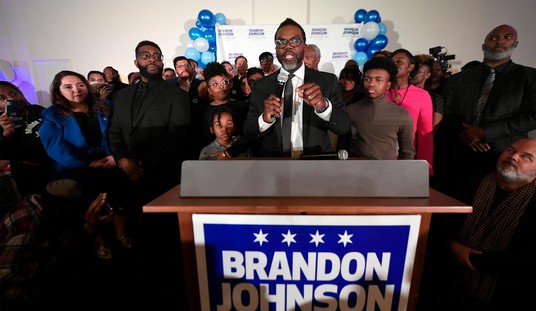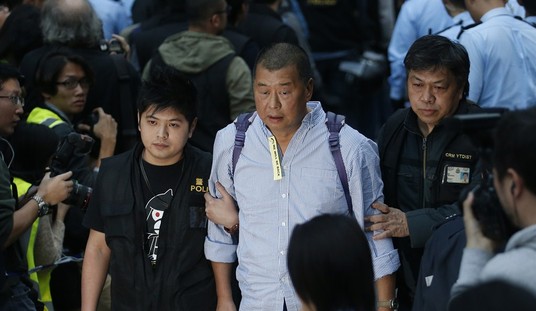Hillary Clinton is not a uniquely different politician today than she was when she ran for president in 2008. It is interesting then that that so many of the personal and professional characteristics which the left regarded as disqualifiers in 2008 are now glossed over or reluctantly accepted as part of an imperfect but largely satisfactory whole package.
Sure, the progressive left has always had its doubts about Clinton. On Thursday, for example, Clinton told a BBC reporter that she does not believe the U.S. should provide military aid and air support to the beleaguered al-Maliki regime in Iraq unless they first embrace political reforms. Does anyone believe, given her track record in office as secretary of state and on countless campaign trails, that Clinton would withhold support for a besieged Baghdad? The left doesn’t.
“Since leaving office, Clinton has gone out of her way to sound more hawkish than Obama on a range of issues,” wrote Bob and Barbara Dreyfuss in The Nation in May. “As she consolidates her position as the expected nominee in 2016, with wide leads over all the likely GOP challengers, it ought to worry progressives that the next president of the United States is likely to be much more hawkish than the current one.”
The far-left also has their share of concerns about Clinton’s disturbingly capitalist views of American economic policy. In February, MSNBC’s Krystal Ball suggested that, having voluntarily spoken before a Goldman Sachs audience and sat on Wal-Mart’s board of directors, Clinton should opt out of a run for the White House. “Despite all her talents, Clinton is not the woman to address the deep inequality, corporate political capture, and middle class rot afflicting our country,” she said.
Those positions Clinton holds which might square with most Americans but are only slightly out-of-step with the Democratic primary electorate, however, have been largely glossed over since the former secretary of state embarked on her pre-presidential book tour. In spite of this tour going about as smoothly as Van Halen’s last, Clinton has been given the benefit of the doubt from her Democratic supporters. Until now, that is.
On Thursday, the former secretary of state joined NPR host Terry Gross where she was asked about her evolution on the issue of gay marriage – an evolution which took longer than either Vice President Joe Biden or President Barack Obama to complete. She was, as Allahpundit wrote, “verrrrry defensive” when asked to explain her thinking on same-sex marriage rights (listen to the full interview here).
It is not Clinton’s center-left approach to economic issues or her relatively hawkish approach to foreign affairs, but her take on gay marriage that is causing members of the mainstream left to give voice to their lingering doubts about Clinton.
On Friday, MSNBC host and Morning Joe regular Thomas Roberts, himself a gay man who is happily married, questioned Clinton’s legitimacy as a progressive on LGBT issues.
“If Hillary Clinton feels that this is a states’ issue, and that’s what we got out of that interview, I think that’s going to be a big mistake for her going forward,” Roberts said, “because, you don’t put minority rights up to a majority vote.”
“I think, if she wants to be seen as a progressive and out front on this issue, that’s not the phrases she wants to be using,” he concluded.
Ouch.
The Atlantic’s Conor Friedersdorf illustrates Clinton’s gay marriage problem perfectly:
“If she is to be believed, she also opposed gay marriage as recently as 2013, long after a majority of Americans already held a more gay-friendly position,” he wrote. “Would the subset of Democrats who thought 2008 opposition to gay marriage should prevent a man from becoming CEO in 2013 really support the 2015 presidential campaign of a woman who openly opposed gay marriage until last year?”
No one doubts that she will be a strong supporter of gay equality if elected president, now that all the political incentives to take that position are aligned. She has advanced gay rights other than marriage at times in her long career. And she has never come across in speeches or interviews like an anti-gay bigot. There is, however, a vocal segment of the left that is invested in likening people who opposed gay marriage to racists who opposed interracial marriage. There is also resentment from gays who feel that the Clintons wronged them in the past.
Friedersdorf quotes Andrew Sullivan who demonstrates that gay marriage advocates have good-faith problems with Clinton’s record on same-sex issues:
She was the second most powerful person in an administration in a critical era for gay rights. And in that era, her husband signed the HIV travel ban into law (it remained on the books for 22 years thereafter), making it the only medical condition ever legislated as a bar to even a tourist entering the US. Clinton also left gay service-members in the lurch, doubling the rate of their discharges from the military, and signed DOMA, the high watermark of anti-gay legislation in American history. Where and when it counted, the Clintons gave critical credibility to the religious right’s jihad against us. And on the day we testified against DOMA in 1996, their Justice Department argued that there were no constitutional problems with DOMA at all (the Supreme Court eventually disagreed).
What I’d like to hear her answer is whether she regrets that period and whether she will ever take responsibility for it. But she got pissed when merely asked how calculated her position on this was. Here’s my guess: Unlike Obama, she was personally deeply uncomfortable with this for a long time and politically believed the issue was a Republican wedge issue to torment the Clintons rather than a core civil rights cause. I was editor of TNR for five years of the Clintons, aggressively writing and publishing articles in favor of marriage equality and military service, and saw the Clintons’ irritation with and hostility to gay activists up close. Under my editorship, we were a very early 1991 backer of Clinton – so I sure didn’t start out prejudiced against them. They taught me that skepticism all by themselves, and mainly by lying all the time.
Friedersdorf nor Sullivan are not liberals, and that is precisely why they can so clearly frame the problem Clinton faces from her left flank on social issues. There is plenty of room for debate on the Democratic side of the aisle on issues relating to economic policy and foreign affairs. That freedom does not extend to social policy. On Abortion, drug policy, criminal justice reform, same sex marriage rights; whatever the majority’s take on those issues happens to be at the moment, it quickly becomes dogma. And dissent is not tolerated.
Clinton’s current position on gay marriage, while right-thinking, was simply not adopted fast enough, and her enthusiasm in support of the cause is very much in doubt. While fringe progressives have been freely critical of Clinton for some time, this issue may provide moderate Democrats with a vehicle for airing their concerns about the likely Democratic standard-bearer.







Join the conversation as a VIP Member